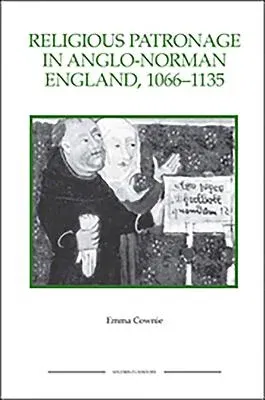Emma Cownie
(Author)Religious Patronage in Anglo-Norman England, 1066-1135Paperback, 15 September 2011

Qty
1
Turbo
Ships in 2 - 3 days
In Stock
Free Delivery
Cash on Delivery
15 Days
Free Returns
Secure Checkout

Part of Series
Royal Historical Society Studies in History New
Part of Series
Royal Historical Society Studies in History New Series Royal
Print Length
280 pages
Language
English
Publisher
Boydell Press
Date Published
15 Sep 2011
ISBN-10
1843836351
ISBN-13
9781843836353
Description
Product Details
Author:
Book Format:
Paperback
Country of Origin:
GB
Date Published:
15 September 2011
Dimensions:
23.39 x
15.6 x
1.47 cm
ISBN-10:
1843836351
ISBN-13:
9781843836353
Language:
English
Location:
Woodbridge
Pages:
280
Publisher:
Series:
Weight:
390.09 gm